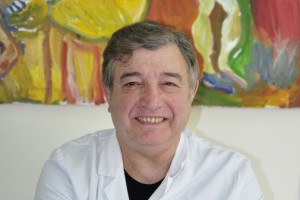 In occasion of the conference “A new scientific humanism”, we interviewed Professor Gian Paolo Donzelli, neonatologist, President of the Foundation of the Meyer Children’s Hospital (Florence), and Full Professor of Pediatrics at the University of Florence. We asked Professor Donzelli which were the inspirational principles of a conference that wanted two research areas to dialogue, Narrative Medicine and precision medicine, with the certainty that this dialogue represents one of the most interesting frontiers in contemporary medicine.
In occasion of the conference “A new scientific humanism”, we interviewed Professor Gian Paolo Donzelli, neonatologist, President of the Foundation of the Meyer Children’s Hospital (Florence), and Full Professor of Pediatrics at the University of Florence. We asked Professor Donzelli which were the inspirational principles of a conference that wanted two research areas to dialogue, Narrative Medicine and precision medicine, with the certainty that this dialogue represents one of the most interesting frontiers in contemporary medicine.
Among the inspirational principles of the conference, there is the awareness of the limit in which medicine has constituted in the last decades: a medicine that has given more and more attention to the technological, biological, positivist dimension of research rather than a global, holistic vision of the patient. The diagnostic field (let us think about diagnostic imaging, and other elements entered the dimension of care) has brought medicine to close further in its “ivory tower”.
Now we have to “lower the lift bride”: let the other disciplines to contaminate medical knowledge, put together the biological-positivist observatory of medicine with humanistic world, create a new knowledge based on the reflection that the relationship with the patient is the relationship with the entirety of the person, in which to study the harmony or not of the parts.
In my introduction to the conference, “Why we are here: the emancipation of care”, I use “emancipation” as translation from the Latin emancipatio, that is “free from the grips” of a certain reality. From what has medicine to emancipate? Probably from two elements. First, from the “presumption” of the Cartesian error: that is, the dualism between mind and body, still prevailing in the dimension of care. Second, from biological pragmatism: today care articulates almost exclusively in the taking-charge of a single organ or apparatus, without inserting disease in a general context, in a reference environment.
Protocols and guidelines are paradigmatic. However, guidelines considering the stratification of pathologies and not of single patients, as if they were all the same, as they have been applied, did not reach expected goals: they increase healthcare costs, medical-legal controversies, and the use of defensive medicine. Guidelines and protocols must be thought and contextualized again, considering also the cognitive results of omics, precision medicine, and Narrative Medicine.
There is a strong contradiction in the system, considered as healthcare organization: this invite us to take care of the patient, but it is not flexible in the real organization of cares. Clinical praxis does not contemplate times for listening, does not give room to the listening of illness narrative, which is more and more perceived as marginal: at the corner of the experience.
Most of the times narrative is not considered as a professional medical tool, but only a “benevolent kindness” less or more practiced according to the personal or social importance of the person the professional is facing.
